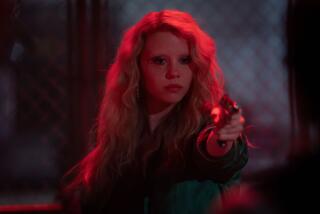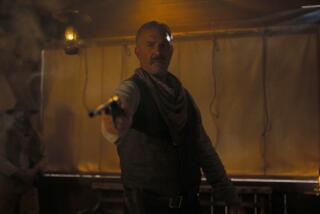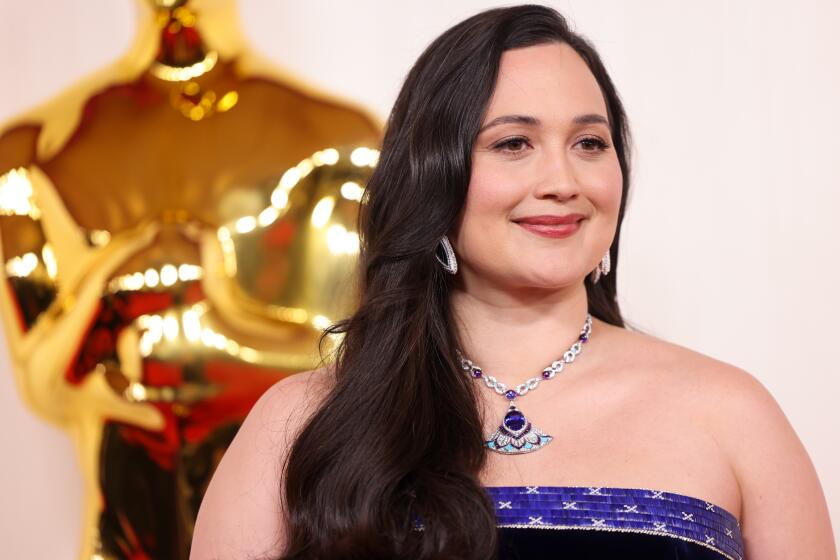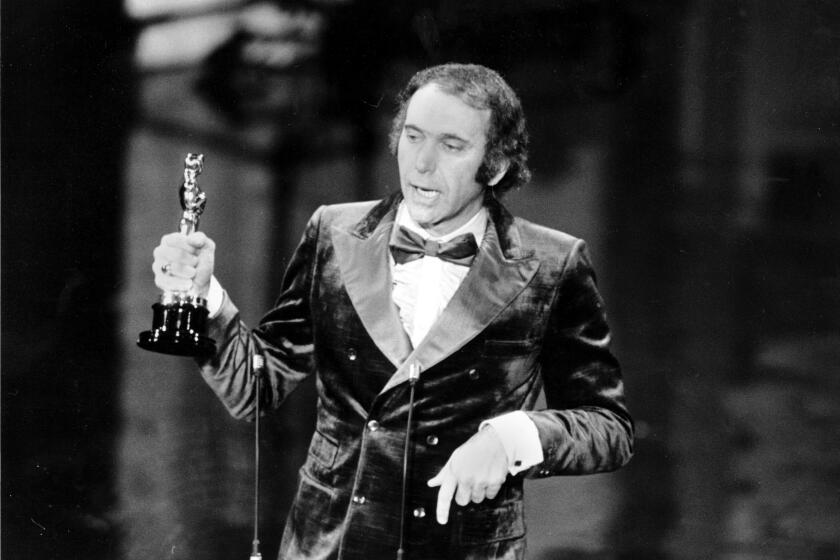Fonda a la Fonda in ‘Ulee’s Gold’
An unadorned and unexpectedly moving look at personal redemption and the resilience of family, “Ulee’s Gold” stands out for its sureness, its quiet emotional force and writer-director Victor Nunez’s ability to find and nurture the mystery and power in the events of an ordinary life.
One of the prime movers of the American independent movement, Nunez, who also serves as his own camera operator and editor, has always made well-regarded but little-seen films, from “Gal Young ‘Un” in 1979 through 1993’s Ashley Judd-starring “Ruby in Paradise.” With “Ulee’s Gold” he’s added a streak of melodrama that if anything heightens the intensity of his work.
Set, like Nunez’s other films, in northern Florida (he once joked his camera would break if it crossed the state line), “Ulee’s” is built around a compelling performance by Peter Fonda that unmistakably echoes the work of his father Henry while serving as the capstone of the son’s long career as well.
Fonda plays Ulee Jackson, a third-generation beekeeper specializing in Tupelo honey, a stubborn and solitary man proud of his self-reliance. A distant, reserved Vietnam veteran who survived the war when his friends did not by being both tricky and lucky, Ulee’s intrinsic faith in family has been shaken by the actions of his own kin.
His son Jimmy (Tom Wood) is in jail for robbery and his daughter-in-law Helen (Christine Dunford) has run off and abandoned their daughters, teenage rebel Casey (Jessica Biel) and her soulful younger sister Penny (Vanessa Zima). The girls live with Ulee, who tells Jimmy he keeps them on a short leash because “one round of fools is enough, don’t you think?”
*
Serving as both a counterpoint to this chaos and as a solace to Ulee are his bees, and among the most memorable scenes in “Ulee’s Gold” are unhurried examinations of the rhythms and rituals of beekeeping. Serene and simply poetic, these sequences have a profound and mesmerizing quality, benefiting from Nunez’s lifetime of craft and his belief in the significance of what he’s showing.
A phone call from his imprisoned son puts an end to Ulee’s removed life. Jimmy’s wife, Helen, has turned up in Orlando, strung out on drugs and staying with the criminal lowlifes who took part in her husband’s failed robbery. Though Ulee’s initial reaction is a convincing “I could care less and you know it,” his core belief that “we don’t ask outsiders for help” makes it inevitable that he will become involved.
That involvement takes two forms. One is the strong dynamic--resisted by everyone from Ulee to the initially out of control Helen to even her children--to re-integrate her into her family. Helping here is Connie Hope (“Home Improvement’s” Patricia Richardson), a neighbor who works as a nurse and is leery herself of too much personal contact.
More dangerous is the insistence by Eddie Flowers (Steven Flynn) and Ferris Dooley (Dewey Weber), his son’s erstwhile criminal partners, that Jimmy knows more than he’s saying about the robbery. Either Ulee helps them get at the truth or family lives will be sacrificed.
Nunez and his insightful ensemble cast have taken this familiar material and woven it into an affecting drama of surprising complexity and impact, neither overstating the melodrama nor avoiding how difficult it can be to make lasting human connections. Best of all is Fonda, wearing metal-rimmed glasses that echo his father’s, who brings a deliberateness and a weight to Ulee’s stillness that say more than pages of dialogue could. His performance holds the film together, and it’s one that all generations of Fondas can be proud of.
Not only do these characters have realistic interior lives, but the locale itself, as in all Nunez’s films, becomes a palpable presence. As camera operator (working with cinematographer Virgil Mirano) as much as writer-director, Nunez’s extensive knowledge of this part of Florida so roots his story in a defined sense of place that it practically grows out of the soil.
Best of all, Nunez has over the years mastered the technique of allowing his narrative to seem to tell itself. “Ulee’s Gold,” unfolding in its own way and at its own pace, illustrates how much is gained when a filmmaker has the nerve to take his time. There is a quality about this film’s use of deliberation that comes at times wonderfully close to magic.
* MPAA rating: R, for language. Times’ guidelines: a mother on an out of control drug trip and children placed in jeopardy.
(BEGIN TEXT OF INFOBOX / INFOGRAPHIC)
‘Ulee’s Gold’
Peter Fonda: Ulee Jackson
Patricia Richardson: Connie Hope
Christine Dunford: Helen Jackson
Tom Wood: Jimmy Jackson
Jessica Biel: Casey Jackson
Vanessa Zima: Penny Jackson
Steven Flynn: Eddie Flowers
Dewey Weber: Ferri Dooley
A Nunez-Gowan/Clinica Estetico production, released by Orion Pictures. Director Victor Nunez. Producers Sam Gowan, Peter Saraf. Executive producers Edward Saxon, John Sloss, Valerie Thomas. Screenplay Victor Nunez. Cinematographer Virgil Mirano. Editor Victor Nunez. Costumes Marilyn Wall-Asse. Music Charles Engstrom. Production design Pat Garner. Art director Debbie Devilla. Set decorator Charles Kulsziski. Running time: 1 hour, 51 minutes.
* In limited release.
More to Read
Only good movies
Get the Indie Focus newsletter, Mark Olsen's weekly guide to the world of cinema.
You may occasionally receive promotional content from the Los Angeles Times.







